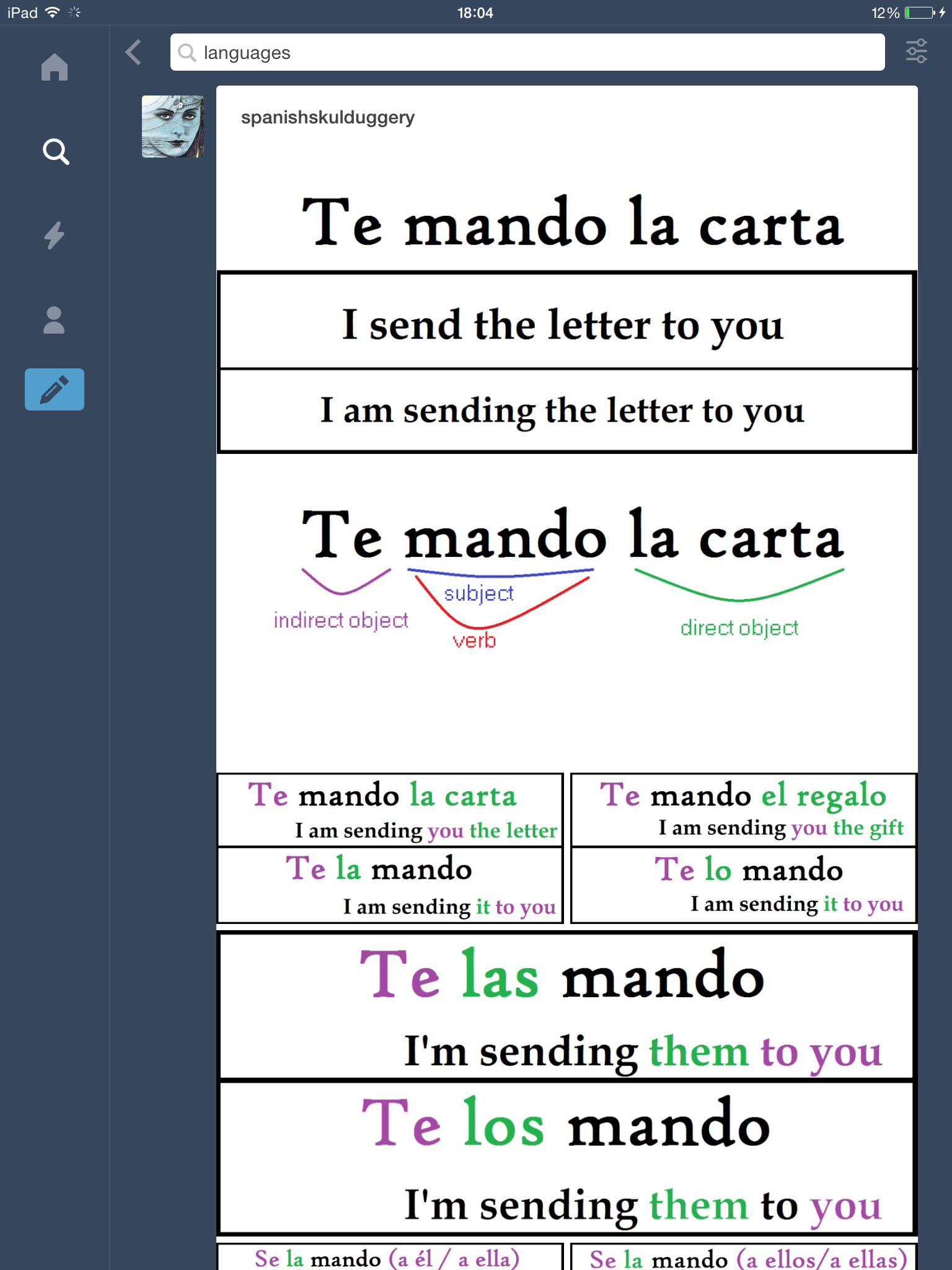One of the most common questions I hear from you guys is how to deal when other people refuse to practice your target language with you. I'm excited to present some awesome advice from Anja at The Germanz in Australia.
Matching this awesome topic, I've created the new guide Make Your German Sound Amazing, featuring 26 Key Phrases For Conversations with German Speakers. Pop your details into the form below to join my email list and get the guide immediately!
Germans and their love for English
When you get lost in Australia, the States or the UK and ask for directions, people will most likely answer in English. When you get lost in Germany, people will most likely answer in English too.
Studies suggest that (only) 62% of the German population is actually able to hold a conversation in English and most movies and TV shows are still dubbed into German. In fact, most German customers still prefer things the German way and speaking German is still a necessity no matter where you live in Germany (with the exception of Berlin).
So why is it that German learners complain that Germans respond to them in English?
What if I told you that you don’t just have to take it? No doubt, you can help Germans stay on track and chat away in German for ages.
I’m German myself and I’m going to tell you about a few easy things you can do.
Why Germans Switch To English
Germans switch to English for three reasons.
Sometimes they want to help you
Sometimes they want to help themselves
Sometimes they just prey on the vulnerable and make you the practice tool
But most of the time, they just don’t know any better.
1. They want to help you
Sometimes Germans simply think it’s being polite. They want to help you communicate more efficiently.
When you ask them, “How goes you? I not finds the station train”, they will most likely help you out in English without speaking a word of German. ‘Oh, that’s cool, they tried in German. They’ll probably understand better when I tell them where to go in English!’, the efficient mind will think.
Germans love speaking English, even when speaking German. Even though many Germans learn at least one foreign language in school, some of them fail to remember that only practice makes perfect.
Additionally, some seem to forget that the comprehension skills of a learner usually outweigh their speaking abilities.
The innocently English speaking German simply doesn’t get that you may understand, that it would be polite and helpful to respond in German. It’s like they buried their teenage memories somewhere in the deepness of their minds, along with that sneaky first kiss behind the school building.
Germans will think you just want to break the ice by saying a few words in German. They will return that favour and will try to make the conversation as unconditionally comfortable as possible for you. In English.
2. It's easier for them
But Germans are not always driven by lovely innocence. Some Germans are simply not patient enough: ‘It will be quicker and easier if I just tell them in English. I’m almost late already!’
If their guesstimate places your German skills below their own English proficiency, they might respond in English.
For Germans, it’s all about communicating efficiently. No overexcited small talk, no politely beating about the actual topic, no exchange of unnecessary information, but rather direct communication, cutting to the chase and getting this question answered as accurately and quickly as possible. In English.
3. Germans want to practise their English skills
Of course, let’s face it, a few Germans simply want to practise their English on you because they know how awesome it feels to finally speak in your language of choice.
Moreover, they want to show off how good their English is to impress you (and others). They are going to take advantage of you.
Imagine how convenient, they don’t even have to leave their country to get what they crave. Speaking English. ‘Perfect! This guy from England gets to speak German every day; doesn’t he live here in Germany?’
They quickly forget that a lot of others see their opportunity as well, and this poor guy from England and his German skills fall by the wayside.
Here’s what you should do, as well as what you should avoid, to keep up the conversation in German.
How to Make Them Speak German
How can you fulfil your dreams and get those Germans to speak in German to you? Embrace these two rules that everything boils down to:
1. Speak no English to Germans
And
2. Make your German sound better than it is.
These two rules are the magic tricks that will lead to a happy life in Germany.
Let’s have a look at how to put them into practice with concrete examples and workarounds.
Respond in German
To really cash in and get the Germans speak German, you want to stay away from English as much as possible.
Certainly, it will take some courage especially when you think your German is not good enough. But you know what? The Germans will work it out. If they don’t get what you mean, they will ask (in English or German, it doesn’t really matter).
But if you’re asked, you’ll get a second chance to say it. You may even get some valuable feedback.
More importantly, when someone starts speaking English to you, just keep responding in German.
If your German is already good enough, try to translate the English response into German and say it back to them in German. Be patient and stick to German to get them back on track, no matter what.
If you don’t understand, ask them what it means, in German
Once more, under no circumstances switch to English.
If you can’t remember the word and you really need to know it, do the following:
Describe the word in German and ask them about the correct word.
Was heißt nochmal das eine Pedal im Auto? -Nein, das andere. Ach, ja, das Gaspedal. - What would you call that one pedal in the car? -No, the other one. Ah yes, the gas pedal.) or
Ask them for the translation in German.
Wie heißt nochmal ‘dog’ auf Deutsch? - What’s the word for ‘dog’ in German again?
Work on your pronunciation
As Germans like to switch when they think that communicating with you might not go too smoothly, how about you make your language skills less of a problem?
If Germans think that you’re comfortable speaking in German, they are less likely to switch.
One way of making your German sound better than it is, is to be amazing at pronouncing things. Just practice the proper pronunciation and know how the intonation pattern of a sentence works.
Use phrases and conversation fillers
You could also use phrases and conversation fillers to make your responses sound more natural.
The idea is again that we want to make our German sound better than it is. It’s like saying, “Keep going, nothing to see here”.
To keep up the flow when speaking, it’s a great idea to have handy the vocabulary you will need. But also don’t forget that natives use clichés and filler words, and they say ‘uhmm’ a lot.
Here are some examples:
Ach wirklich/Echt? - Ah really?
Cool!
Macht nichts!/Kein Problem. - That’s alright!/No problem.
Hört sich gut an. - Sounds good.
Ach so. - Ah yea.
Stimmt!/Genau - I agree./Yeah, that’s right.
Na ja, vielleicht. - Yeah, maybe.
Compromise
Let’s face it, sometimes there’s no way that subtle hints will get them back on track.
Please don’t take it personally, they might not even notice. The only thing that will help here is to be very clear about your goals, about genuinely wanting to learn proper German.
Apart from saying “Bitte nur in Deutsch”, you can decide to blitzkrieg and offer a language tandem. Your compromise could be
One hour speaking in German, another hour speaking in English.
If you see them every day, you could agree to speak English from Monday to Wednesday and German from Thursday to Sunday.
If the two of you agree to correct each other properly and also provide alternatives for certain sentences and phrases, you could both benefit from the language tandem quite a bit.
Make (new) German friends
As your language skills progress, you’ll be able to chat away on more and more topics. You will be developing your ‘German You.’ It may be the same as — or completely different from — the English-speaking you.
With your ever-improving skills, making new German friends will become a lot easier.
If you have moved to a German-speaking country, you’ll hit the jackpot by joining a club (der Verein) in the German countryside, but clubs can be found anywhere across Germany, even in the big cities. Similarly, you want to get involved and lend a hand at the local Tatort night, the German-speaking weekly handcraft meeting or the local climbing hall.
Try to maintain a healthy ratio of English-speaking and only-German-speaking friends. You have a choice among about 100 million German native speakers in the European Union alone.
Don’t forget, the more you get to speak German, the easier it gets. Just let Germans know you’re up for a challenge. They will be up for it as well.
Summary
In summary, please don’t get turned off by responses in English, keep learning German and remember these two fundamental rules:
Don’t speak English to Germans.
Make your German sound better than it is.
On a concrete note, you could:
Always reply in German.
Ask for missing words and explanations in German.
Improve your pronunciation.
Use conversation fillers and ‘uhm’ a lot.
Compromise by offering language tandems.
Move to the German country.
Make (new) German speaking friends.
You’ll find more nifty tricks on learning and speaking German on my German language blog.
Don’t forget to tell me in the comments about your favourite strategy in dealing with English speaking Germans.
This article was written by Anja. Anja lives in Melbourne, Australia, is originally from Germany and writes about the German language and culture on her blog when she is not busy teaching German language classes. Hang out and have a chat with her on Google+ or Twitter.













